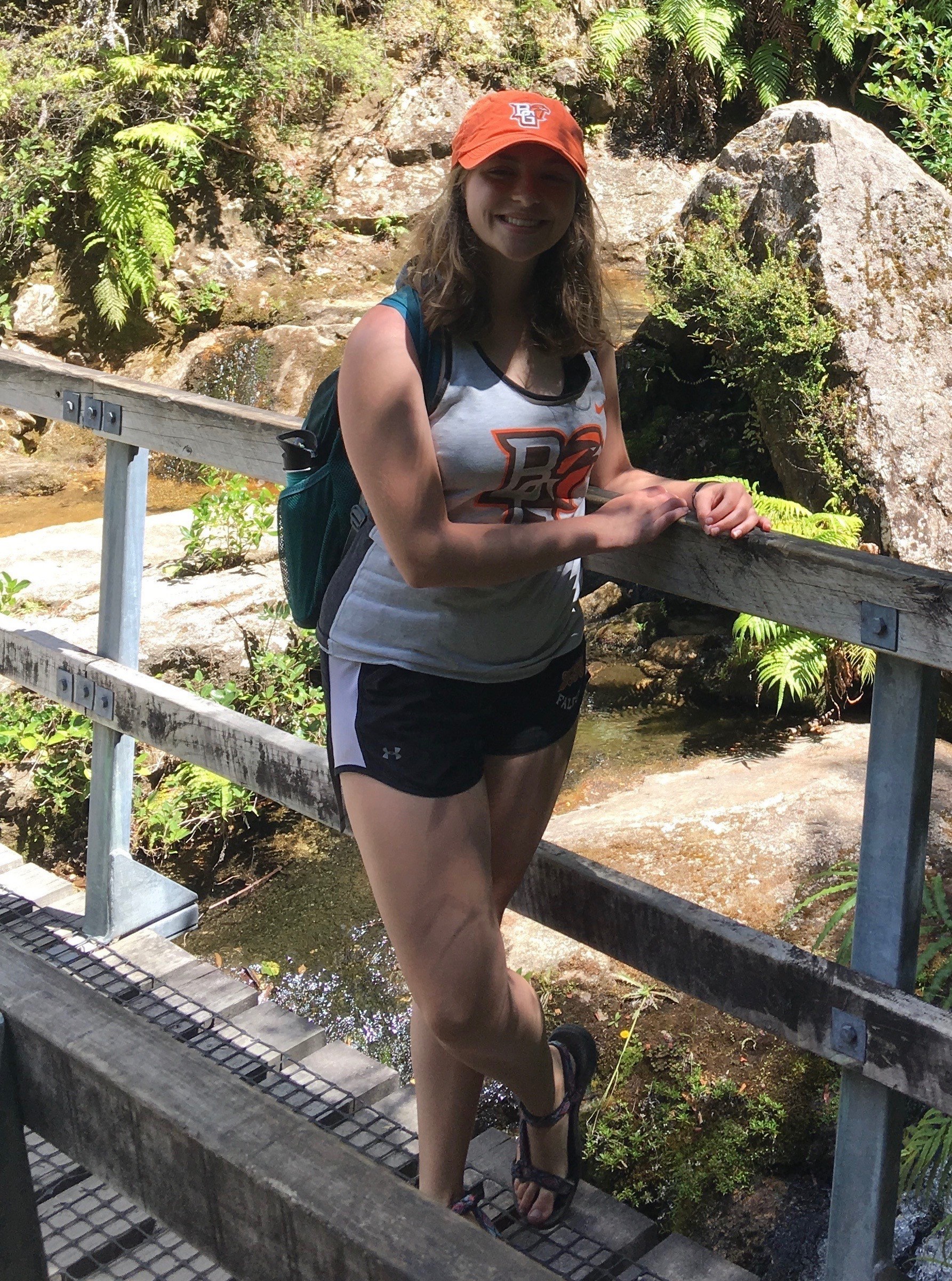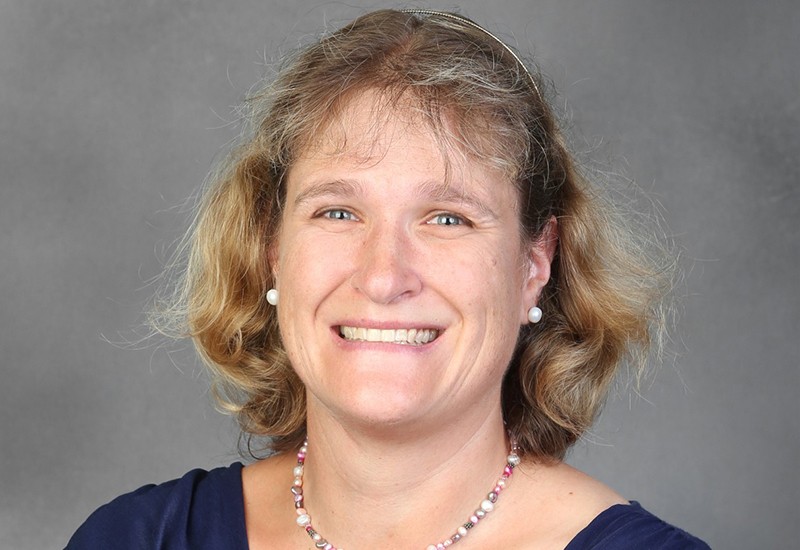The Conversion Rate of THC-A to THC Inside a Gas Chromatograph Mass Spectrometer
Sarah Blake is a fourth-year student at Bowling Green State University. She is originally from Akron, Ohio and is currently double-majoring in Forensic Chemistry and English, with minors in Linguistics and Chemistry. In addition to serving as an Academic Peer Mentor for Kohl Hall and a math tutor for the Learning Commons, she is also involved with Prairie Margins. For the 2020 CURS Symposium, Sarah completed a research project entitled “The Conversion Rate of THC-A to THC Inside a Gas Chromatograph Mass Spectrometer.”
8 Questions with Sarah
When you’re trying to identify evidence as a marijuana sample, you might think to use a gas chromatograph mass spectrometer (GC/MS). The GC/MS will tell you if THC is present, and it might give you an idea of how much is in the sample, but most of the THC that exists in the plant actually is in the form of THC-A, the carboxylic acid form. THC-A is converted into THC by heat, but the GC/MS uses heat to separate compounds. When trying to measure how much THC you have, you’re accidentally skewing your results by adding the converted THC-A into your final answer. My research question was, is there a regular conversion between THC-A and THC inside a GC/MS?
To study this, I prepared samples of standard grade THC and THC-A in different concentrations and ran them though the GC/MS. I then compared the peak areas of THC and THC-A to the known concentrations to see if there was a consistent relationship between the results and the concentrations. Unfortunately, there was no relationship between the two. My results were inconsistent because THC sticks to the insides of the GC/MS and comes off intermittently.
I have always been interested in research. My favorite lab assignments were the ones where we’re given unknowns and told to figure them out. I was talking to my forensics advisor about how I wanted to do research to expand my experiences, and he brought the THC/THC-A quantification problem to my attention. THC quantification and medical marijuana are a current issue for Ohio legislators and crime labs, so I wanted to see if I could help solve the problem.
The biggest problem I encountered was the inconsistent results. Because the THC stuck to the glass on the inside of the GC/MS, I couldn’t interpret anything successfully. While I wasn’t able to overcome it during my first research project, I turned it into another opportunity for research and I applied for another CURS grant. This fall I’ll be working on how to prevent THC from sticking to glass, but if not, I’m still grateful for the opportunity to do more research!
I learned how to turn failures into their own sort of successes. Like I said, I definitely didn’t get the results I wanted, but it turns out that I have even more research questions to explore because I “failed” my first one! It led me to more opportunities, and I still think I learned a lot about the process of scientific research. I also realized how much I love doing forensics research, and now I’m considering how to include that in my career after college.
I learned how to read scientific journals and chemistry books. I spent a lot of time researching procedures and ideas before I finished my grant proposal. I emailed professors at other universities, I spent hours in the library and on EBSCOHost, and I even talked to BGSU faculty I’ve never met before because they were scientific experts. The best scholarly lesson I got from CURS was how to utilize my resources as a student.
Don’t get discouraged or think, “this subject is way beyond me/my skills.” Ask all your questions, talk to as many people as you can, and you’ll be able to learn so much more than you ever expected.
My fun fact is, I love learning languages! I’ve been teaching myself Italian for over a year now, but I’m also just starting some Russian, Swedish, Chinese, and Romanian. The DuoLingo app is my favorite.

Pictured above: Sarah Blake studying abroad in New Zealand, January 2019.
Don’t get discouraged or think, 'this subject is way beyond me/my skills.'"
Updated: 03/07/2021 05:07PM

